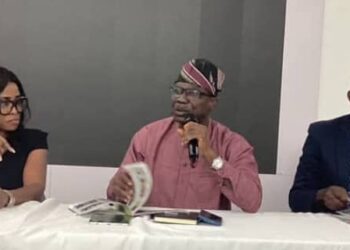The inadequately mitigated insurance risks across the countries in Africa, have left the flanks of agricultural produce open. This has put the continent on the line of series of devastating agricultural losses that threaten food security.
This was the hub of the keynote address by the Deputy Managing Director/Chief Operating Officer, Africa Re, Mr. Ken Aghoghovbia, to the Insurance and Agriculture session of Cultivate Africa Partnership Dialogue, hosted by African Union in Addis Ababa, Ethiopia.
The virtual meeting was told last week by Aghoghovbia, that the agricultural sector in Africa, is sadly plagued by a number of risks which are not adequately mitigated despite the fact that agriculture “is a key economic driver on the African continent.”
Despite this spell of seizure on the prominence of the agriculture space, he remarked that agriculture despite the less than adequate attention, “contributes about 15% of the continent’s average GDP, underscoring the fact that the performance of the agricultural sector can significantly influence economic development in most Sub-Saharan countries.”
Running through some of the risks that surge like waves and have plagued the continent with devastating impacts from 2008 to 2020 at four different periods, Aghoghovbia, with the hindsight that this ought not to be so, squarely pointed the African Union session to insurance industry. He minced no words as he ticked insurance industry as one that can provide the partnership and services that brings cure rather than palliative.
Alluding to what insurance market in Africa could do, he put the industry at the focal point saying, “Insurers have a critical role to play for African economies to promptly recover from such losses which threaten food security.”
The present limited role of insurance in prompt recovery from agriculture losses is akin to posturing, as he stated that, “only 3% of smallholder farmers in Sub-Saharan Africa have insurance to protect themselves against these risks.” Unfortunately, he said; “Most of the farmers cannot even afford the premium required to obtain adequate insurance covers and government subsidies, when available, are often limited in scope.”
This is where he said Africa Re comes in, “with its mission to support African economic development” by working “with the insurance industry and other partners to develop viable agriculture insurance schemes by providing needed support in the schemes development, technical training and reinsurance capacity.”
Admitting that there are some success stories, where effective partnerships in the agriculture insurance sector with a great deal of focus on smallholder farmers has worked, he pointed to the example of World Bank’s Global Index Insurance Facility (GIIF) collaboration with Africa Re.
Aghoghovbia stated that the quest for partnership to mitigate agriculture risks should get a boost in the post-Covid environment, stressing that “it will be crucial to develop partnerships with relevant bodies in order to maximise scale, efficiency, skills and performance.”
At the same time, he advised the session to use the dialogue platform “to engage some of the partners with diverse roles and experiences… learn from the great insights and resources they bring and be better positioned to transform the agricultural space in Africa.”









































